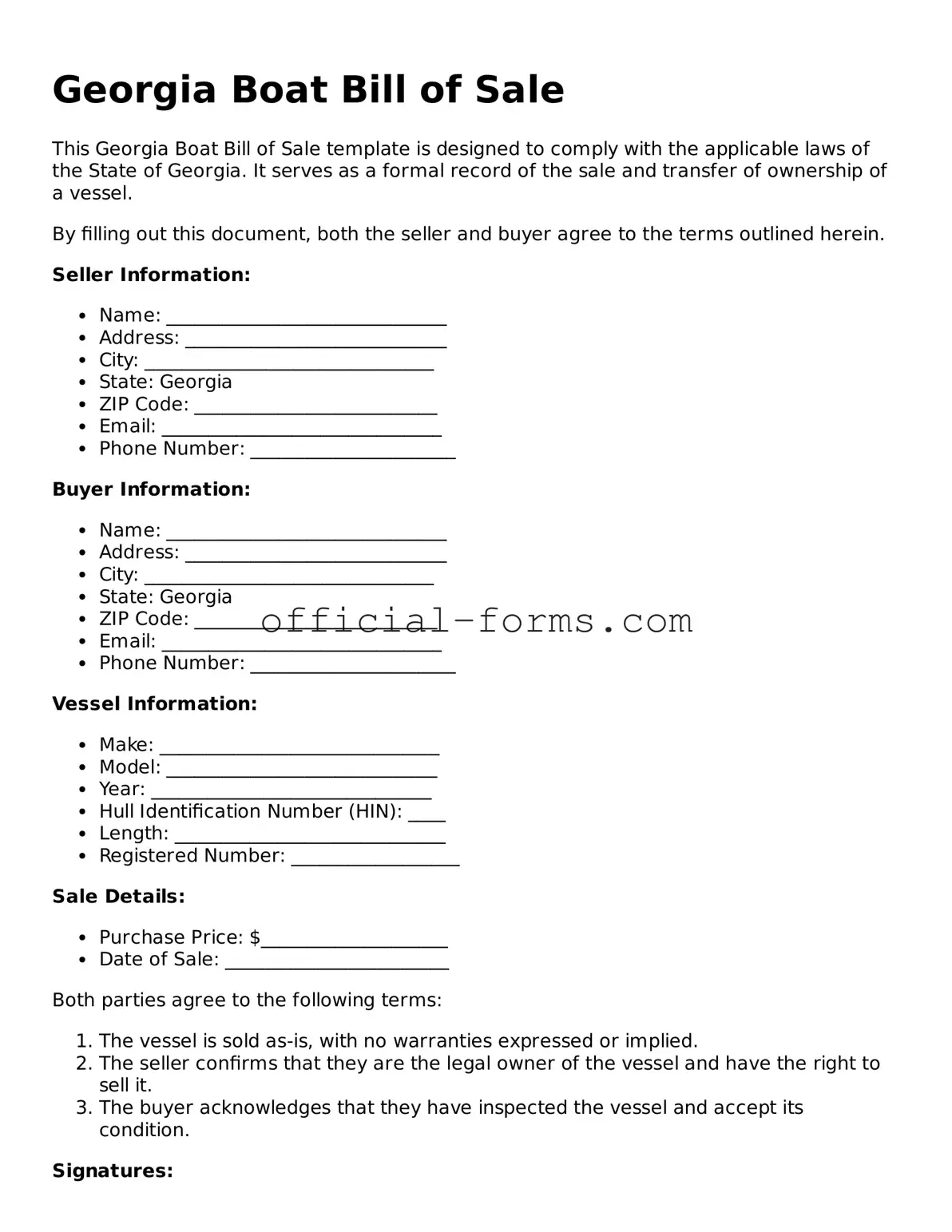Official Georgia Boat Bill of Sale Document
A Georgia Boat Bill of Sale form is a crucial document that serves as proof of the transfer of ownership for a boat. This form not only protects both the buyer and the seller but also ensures that the transaction is legally recognized. Understanding its components and requirements is essential for anyone involved in buying or selling a boat in Georgia.
Open My Boat Bill of Sale Now

Official Georgia Boat Bill of Sale Document
Open My Boat Bill of Sale Now
Don’t leave your form incomplete
Finish Boat Bill of Sale online quickly from start to download.
Open My Boat Bill of Sale Now
or
➤ PDF
